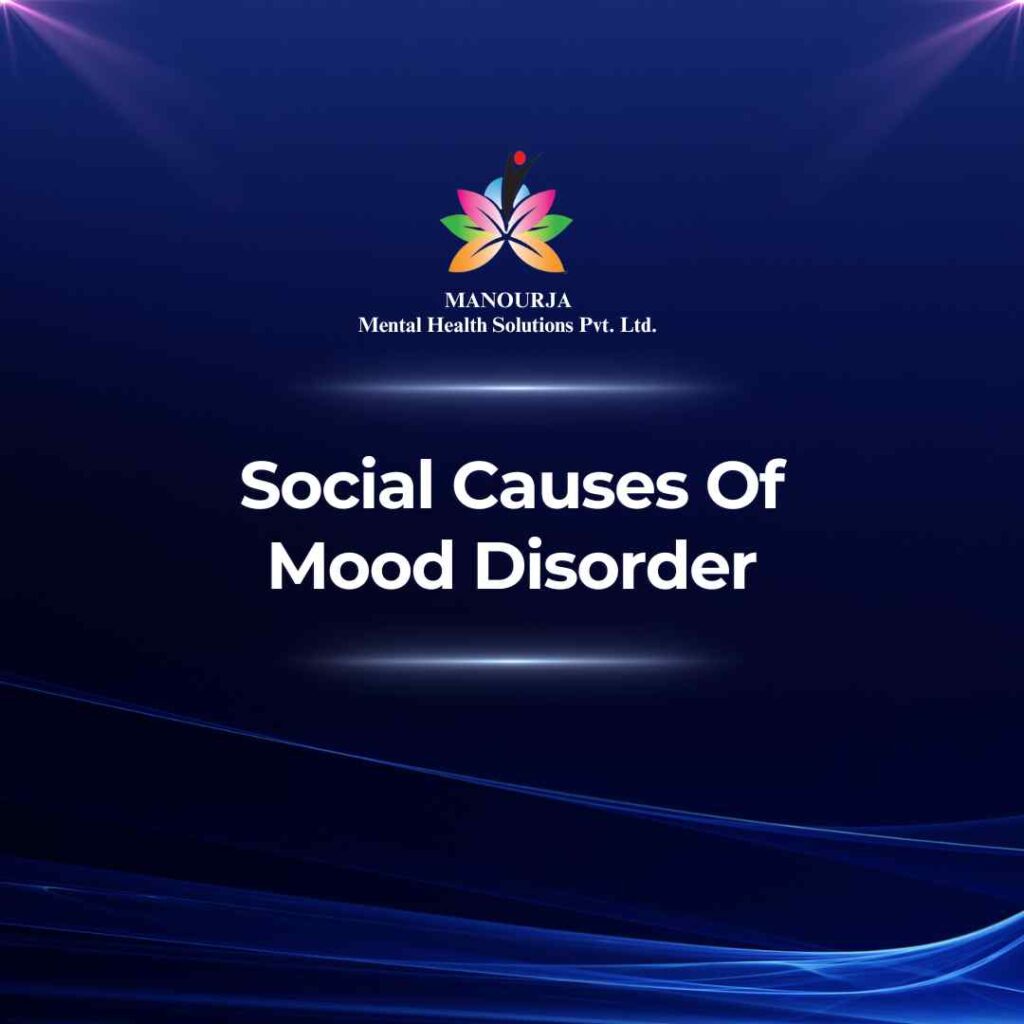Social Causes of Mood Disorder

Mood disorders such as depression and bipolar disorder are influenced by a range of factors, including biological, psychological, and social causes. Social factors, in particular, play a critical role in the onset and progression of mood disorders by affecting how individuals interact with their environment and maintain relationships.
Here’s a detailed look at the key social causes of mood disorders:
Social Isolation and Loneliness
Lack of social support and chronic feelings of loneliness can significantly increase the risk of developing mood disorders. Humans are inherently social beings, and a deficit in meaningful social connections can lead to increased stress and diminished mental health.
Life Events and Stress
Significant life events, both positive and negative, can act as triggers for mood disorders. This includes events like the death of a loved one, divorce, job loss, or even the stress of a new job or marriage. The psychological stress from adjusting to these changes can precipitate or exacerbate mood disorders.
Interpersonal Conflicts
Ongoing conflicts with family members, friends, or colleagues can lead to chronic stress and emotional turmoil, contributing to the development of mood disorders. This is particularly significant in cases where an individual feels trapped in a hostile or unsupportive environment.
Socioeconomic Status
Lower socioeconomic status is associated with a higher risk of many mental health disorders, including mood disorders. Factors such as poverty, limited access to quality education, job insecurity, and lack of access to healthcare can increase stress and reduce the resources available to manage mental health effectively.
Childhood Adversity
Experiences in childhood such as abuse (physical, sexual, emotional), neglect, parental loss, or being part of highly dysfunctional family dynamics are potent social factors that can influence mental health into adulthood. These experiences can shape emotional responses and stress reactivity, which in turn affect mood regulation.
Cultural and Social Expectations
Cultural norms and societal expectations can also influence mood disorders. For example, certain cultures may stigmatize mental health issues, discouraging individuals from seeking help, which can exacerbate symptoms. Conversely, societal pressure to behave or perform in certain ways can increase stress and feelings of inadequacy or failure.
Work Environment
A stressful or toxic work environment can contribute to the development of mood disorders. High demands, low control, and effort-reward imbalance are significant stressors that can impact an individual’s mood and overall mental health.
Community and Social Networks
The broader community environment, including the availability of social resources, neighborhood safety, and social cohesion, can also impact mental health. A supportive community can provide a buffer against stress, whereas a hostile or unsafe environment can increase the risk of mood disorders.
Addressing these social causes is often a crucial component of treating mood disorders. Interventions may include enhancing social support through group therapy or community engagement, improving conflict resolution skills, and connecting individuals with resources to help manage stress related to socioeconomic challenges.
At MANOURJA, we believe in the transformative power of counseling. Our experienced therapists offer a safe and supportive space where you can explore your thoughts, emotions, and challenges. Through personalized counselling sessions, we’ll work together to develop coping strategies, build resilience, and achieve lasting positive change. Discover the path to a healthier, happier you with MANOURJA counselling services.
MANOURJA Rehabilitation Services
At MANOURJA, we’re dedicated to helping you in rebuild your life, after difficult times. Our rehabilitation services focus on understanding what you need to move forward, whether you’re recovering from addiction, trauma, or any psychological – social challenges. We create personalized plans, that are all about helping you, regain your strength and find hope again. With a caring team by your side, you’ll have the support to make real progress and take steps toward a brighter, healthier future.
